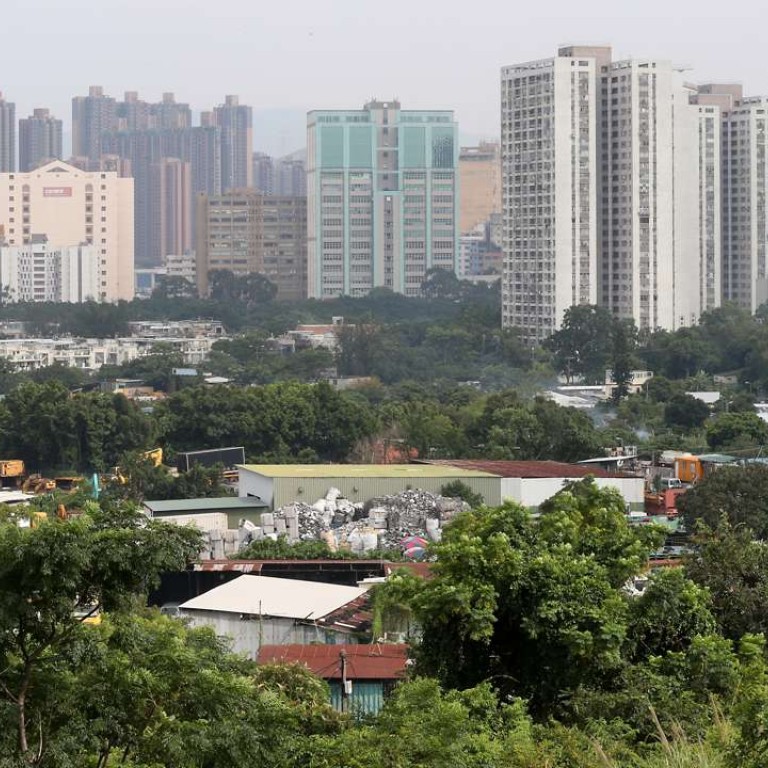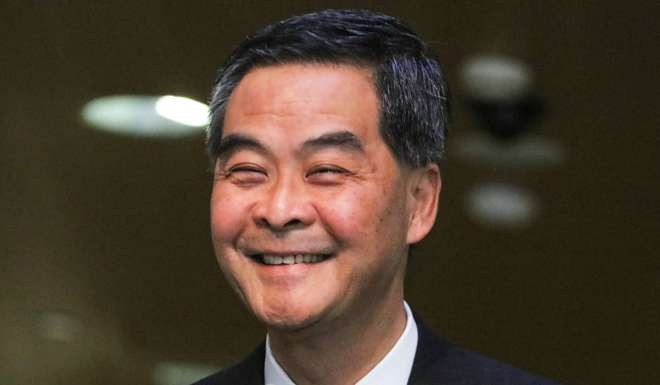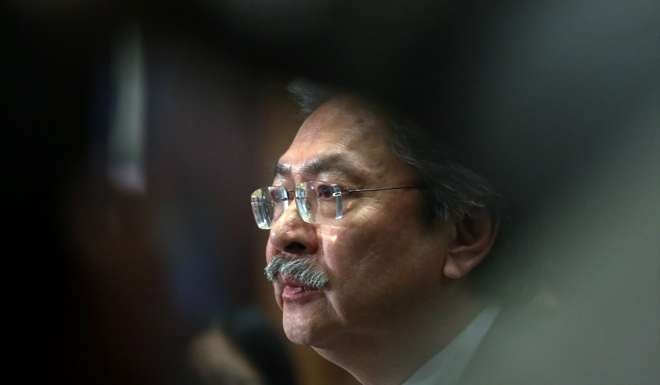
Revealed: decision behind Wang Chau rural housing scandal reaches very top of Hong Kong government
Chief executive and three key secretaries all present when plan was made at government meeting in 2014 to defer key part of Wang Chau development
All the top government officials including the chief executive and the three key secretaries took part in a collective decision to defer a key part of a controversial housing project, the Post has learnt.
The news emerged even as Leung Chun-ying avoided questions over the past few days as to who made the call to hold up development of a brownfield site in Wang Chau, Yuen Long. The site is controlled by rural leaders and could yield 13,000 public housing flats.

A source familiar with the situation said the collective decision was made at a weekly meeting of the government in early 2014, chaired by the chief executive. Tsang, Lam, Secretary for Justice Rimsky Yuen Kwok-keung and the relevant bureau and department heads were all present.
“They made the decision after receiving a progress report by the Housing Department, which made the recommendation to defer phases two and three of the Wang Chau project,” the source said.
The progress report, dated January 2014, said the two phases should be deferred “to later periods” due to oppositions from local leaders. Those two phases cover a brownfield site – a large part of which is controlled by a rural leader for the operation of a car park and open storage business – could yield 13,000 flats.
A similar finding was reported by Singtao Daily on Wednesday.
The source also said the progress report mentioned Yuen Long district council chairman Leung Che-cheung had suggested to the government to confine the development to only phase one, with 4,000 flats. That phase, to be completed by 2024/2025, covers a green belt area where three villages will have to be displaced.
Preceding progress reports had stipulated phases two and three were scheduled for completion in 2026/2027, the source told the Post, but these dates were no longer mentioned after officials decided to defer them at that meeting.

On Monday, Leung brought Tsang into the controversy, saying it was the financial secretary’s Steering Committee on Land Supply that followed up detailed issues regarding the project.
Tsang then said his committee did not decide that Wang Chau should be developed in phases.
The chief secretary on the same day told the press she was not a member of either Leung’s or Tsang’s panels. She said on Tuesday she noted her boss and other officials would speak to the media on the matter at the press conference.

